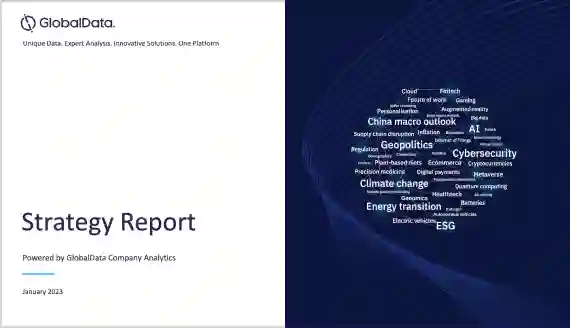Direct-to-Consumer Genetic Tests – Thematic Research
Powered by ![]()
All the vital news, analysis, and commentary curated by our industry experts.
Genomics refers to the study of an entire set of DNAs within an organism. This includes researching their molecular components, structures and functions of genes, and developing technologies that map and edit sequences of DNA. What started as a global scientific endeavor to map the human genome in the 1990s had unintentionally created an entirely new business market, whereby companies use genomic technologies to provide personal, direct-to-consumer genomic testing services. This enabled consumers to gain unprecedented insights into their current and forecasted health conditions and even family ancestry, all from a genomic perspective.
Direct-to-Consumer Genetic Testing (DTC-GT) has been a rapidly expanding market that continues to generate substantial amounts of revenue and public interest. The rapid growth of the market has historically been accompanied by regulatory limitations on the extent of consumer health information these services can provide. It has also recently gained public scrutiny over privacy concerns of the handling of consumers’ genomic data by the service providers. Although this market had grown remarkably in earlier years, a slower growth rate in the past couple years suggests the market to have approached saturation, with continued declining future usage. To reverse this recent trend, both leading companies and disruptors in this market will need to develop innovative solutions to renew early adopters of direct-to-consumer genetic testing, and to acquire hesitant consumers by gaining their trust and providing increased value.
Players in the DTC-GT market range from small private companies that specialize in specific value chains, to large corporations that dominate multiple industries. Specifically, three stages of the genomics value chain are considered for this report: technology manufacturers that enable the ability to analyze enormous amounts of genetic data, service providers of DTC-GT, and service providers of third-party data reanalysis.
What are the direct-to-consumer genetic testing trends?
Shift from SNP BeadArray chips to nextgeneration sequencing
It is expected that next-generation sequencing will eventually surpass SNP-BeadArray chips as the major technique used for a direct-to-consumer genetic testing. A major factor determining this shift will be the increasing affordability of next-generation sequencing reagents. Costs associated with next-generation sequencing have fallen dramatically over the last decade, thus removing one of the main obstacles to widespread implementation of this technology.
Role of social media
Many people use online environments to discuss and share various aspects of their daily lives. The sharing of DTC-GT results has increased in the past few years with users typically sharing ancestral background results. A study investigating DTC-GT user experiences via online discussions found that consumers who disclosed their experience on social media site Reddit centered their discussion on kinship, inquiries or updates on testing progress, ancestral origin, and intent to send raw DNA data to third parties for health risk interpretations. In addition, the study found that DTC-GT consumer’s purchase behaviors are associated with societal events (e.g., holiday promotions).
Genetic Information Non-discrimination Act, US
The Genetic Information Non-discrimination Act (GINA) is US federal legislation that was signed into law on May 21, 2008 and prohibits the discrimination of individuals based on genetic information, with respect to health insurance and employment. This legislation makes it illegal for health insurance providers to require or use genetic information, in order to make decisions about customer eligibility, premiums, contribution amounts, or coverage. GINA applies to the majority of health insurance providers in the US, including insurance that is obtained through employment, purchased individually, and Medicare. Health insurance plans that are not subject to GINA include certain military and veteran plans, the Indian Health Service, and federal employee health benefit plans. However, these plans have additional policies in place to prevent discrimination on the basis of genetic information.
FDA classifies direct to-consumer genetic tests as class II medical devices
The FDA classified 23andMe’s personal genome service (PGS) genetic health risk report for 10 separate diseases as a class II medical device in April 2017. These were: Hereditary Thrombophilia, Alpha-1 Antitrypsin Deficiency, Alzheimer’s Disease, Parkinson’s Disease, Gaucher Disease Type 1, Factor XI Deficiency, Celiac Disease, G6PD Deficiency, Hereditary Hemochromatosis, and Early-Onset Primary Dystonia. In April 2018, the 23andMe PGS for BRCA1/2 was then also classified as a class II medical device. As only class III medical devices require FDA approval before they can be marketed, this allows 23andMe to sell its products within the US without the need for physician oversight.
Who are the key players in the direct to-consumer genetic tests?
Key players include 23andMe Inc.; Illumina Inc.; InVitae Corp; OraSure Technologies Inc.; Ancestry.com Holdings LLC; ConnectMyDNA; CRI Genetics; Dante Labs Inc; FamilyTreeDNA; Full Genomes Corp Inc; Helix OpCo LLC; LiveWello LLC; MyHeritage Ltd; Nantomics LLC; Orig3N Inc; Pathway Genomics Corp; PerkinElmer Genomics; ToolBox Genomics, Inc.; Veritas Genetics Inc; and WeGene.
Direct to-consumer genetic tests, key players
To know more about key players, download a free report sample
Market report scope
| Industry Trends Covered | Switch from using the Illumina OmniExpress chip to a customized Illumina global screening array (GSA) microarray, shift from SNP BeadArray chips to nextgeneration sequencing, M&A, role of social media, privacy and security concerns, and result accuracy |
| Companies Mentioned | 23andMe Inc.; Illumina Inc.; InVitae Corp; OraSure Technologies Inc.; Ancestry.com Holdings LLC; ConnectMyDNA; CRI Genetics; Dante Labs Inc; FamilyTreeDNA; Full Genomes Corp Inc; Helix OpCo LLC; LiveWello LLC; MyHeritage Ltd; Nantomics LLC; Orig3N Inc; Pathway Genomics Corp; PerkinElmer Genomics; ToolBox Genomics, Inc.; Veritas Genetics Inc; and WeGene |
- This is a single theme report providing in-house analyst expertise of genomics products in the direct-to-consumer sector. Components of the report include:
- Key Players: identify key players in the direct-to-consumer genetic tests market and their position in the value chain.
- Trends: identify the key trends shaping the direct-to-consumer genetic tests industry over the next two to three years.
- Industry Analysis: Gain a better understanding of the direct-to-consumer genetic tests market in terms of types of tests offered, COVID-19 impact, and M&A activity.
- Value Chain: identify the various segments of the direct-to-consumer genetic tests market.
Reasons to Buy
The report will enable you to:
- Develop and design your corporate strategies through an in-house expert analysis of direct-to-consumer genetic tests by understanding the primary ways in which this theme is impacting the genomics market.
- Stay up to date on the industry’s major players and where they sit in the value chain.
- Identify emerging industry trends in direct-to-consumer genetic tests to gain a competitive advantage.
Illumina Inc.
InVitae Corp
OraSure Technologies Inc.
Ancestry.com Holdings LLC
ConnectMyDNA
CRI Genetics
Dante Labs Inc
FamilyTreeDNA
Full Genomes Corp Inc
Helix OpCo LLC
LiveWello LLC
MyHeritage Ltd
Nantomics LLC
Orig3N Inc
Pathway Genomics Corp
PerkinElmer Genomics
ToolBox Genomics, Inc.
Veritas Genetics Inc
WeGene
Table of Contents
Frequently asked questions
-
Who are the key players in the direct-to-consumer genetic testing market?
23andMe Inc., Illumina Inc., InVitae Corp, OraSure Technologies Inc., Ancestry.com Holdings LLC, ConnectMyDNA, CRI Genetics, Dante Labs Inc, FamilyTreeDNA, Full Genomes Corp Inc, Helix OpCo LLC, LiveWello LLC, MyHeritage Ltd, Nantomics LLC, Orig3N Inc, Pathway Genomics Corp, PerkinElmer Genomics, ToolBox Genomics, Inc., Veritas Genetics Inc, and WeGene are some of the major companies in direct-to-consumer genetic testing landscape.
-
Who are the leading technology manufacturers in direct-to-consumer genetic testing landscape?
Orasure Technologies, Illumina, Thermo Fisher Scientific, and Qiagen are the leading technology manufacturers in direct-to-consumer genetic testing landscape.
-
Who are the service provider leaders and challengers in direct-to-consumer genetic testing landscape?
23andMe, MyHeritage, Orig3n are service provider leaders, while Invitae Corp, Tellmegen, Pathway Genomics, WeGene, Helix OpCo, and Mayo Clinic are challengers in direct-to-consumer genetic testing landscape.
Get in touch to find out about multi-purchase discounts
reportstore@globaldata.com
Tel +44 20 7947 2745
Every customer’s requirement is unique. With over 220,000 construction projects tracked, we can create a tailored dataset for you based on the types of projects you are looking for. Please get in touch with your specific requirements and we can send you a quote.
Related reports
View more Medical Devices reports











